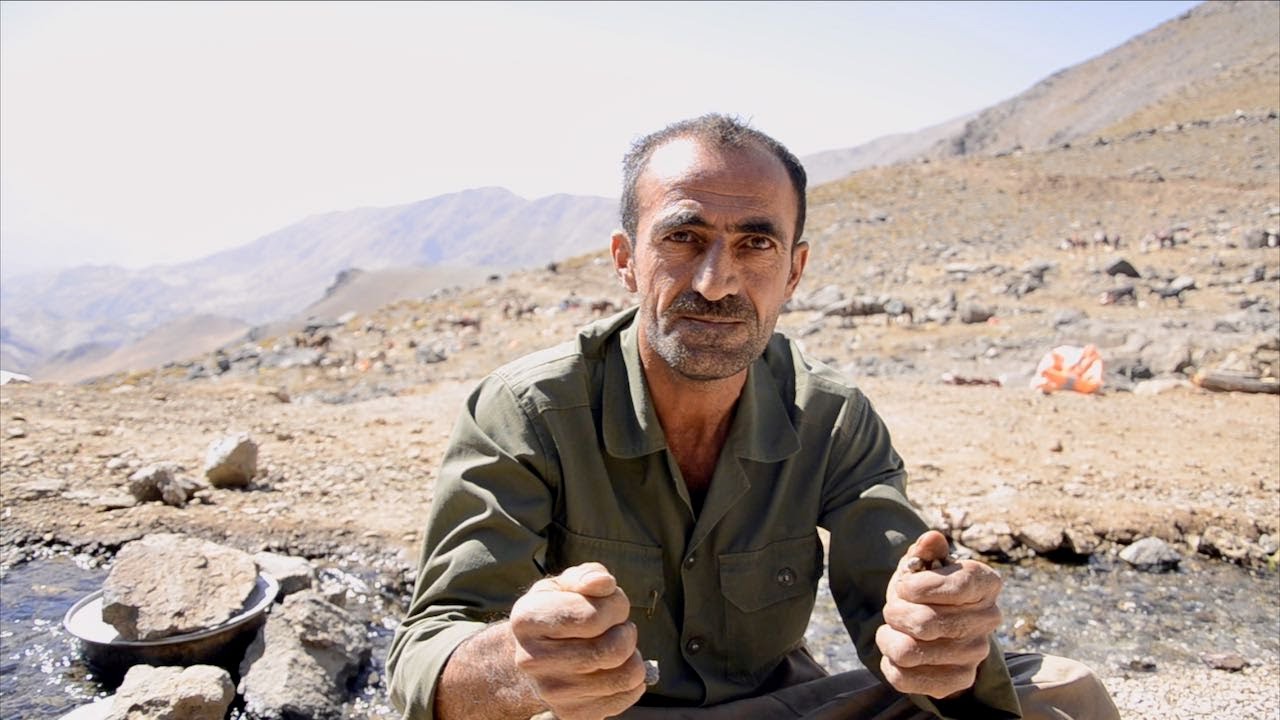You can download the film They Shoot Kolbars, Don’t They? in the preferred quality here.
Massoud Kordpour, a human rights activist and editor-in-chief of Mokrian News Agency, describes new IranWire documentary They Shoot Kulbars, Don’t They? as a short but clever account of the history of poverty, deprivation, and discrimination in Kurdistan.
***
Massoud Kordpour lives in Iran and currently resides in Bukan, in West Azerbaijan province. The new documentary They Shoot Kolbars, Don’t They? reminded him, he tells IranWire, of his days in prison in Mahabad – and specifically of some of his fellow inmates.
This journalist was arrested in August 2008 on charges of "propaganda against the regime" and spent a year in Bukan and Mahabad prisons. During detention, he was housed alongside a number of Kurdish kolbars who had been convicted of financial crimes.
"In early 2009,” remembers Kordpour, “a Sardashti kolbar was sentenced to three months in prison just for smuggling two sacks of walnuts, and was jailed because he was unable to pay the fine.” Another, he recalls, who was a citizen of Sardasht, was sentenced to imprisonment and a heavy fine of 22 billion tomans [$1m] for smuggling goods and food items.
According to Kordpour, there were and still are ongoing cases of kolbars who conveyed goods first on their backs and then by car, when they had become financially better off, "but were imprisoned and their goods confiscated. Practically all their property was confiscated and, and in their own words, it looks like this worked out well for the government."
Kurdpour attributes the increasing number of residents of border towns and villages engaging in kolbari to the government's securitization of Kurdistan over the past four decades. "The government's view of Kurdistan has always been security-related, and this has closed the path to economic development, the creation of production units and job opportunities, and has imposed dire economic conditions on the work and livelihood of the people of Kurdistan," Kurdpour says. "Border areas are more vulnerable and fragile than other parts of the region."
The editor also says MPs and local representatives from Kurdistan have been ineffectual in attracting government support and funding for the province’s economic growth and development. “MPs, especially those from the Kurdish regions, promise government funding, and to support job creation and the creation and strengthening of production units. But they can’t even stop the guards shooting at kolbars.”
Kolbars are often killed, injured or maimed by border guard shootings, by falling from heights or treading on landlines, which has in turn brought misery to countless families. The government refuses to address their plight, too: “Families who have lost their breadwinners have no other solution than to refer to the Welfare Organization, the Imam’s Relief Committee, or other charitable organizations. But the help they offer is meager and not enough to live on.”
Massoud Kordpour also highlights the effective role of the Iranian state-controlled media in covering the suffering of the kolbars on the borders of Kurdistan. Moreover, he says kolbari is just one manifestation of the poverty and deprivation spreading across the country – alongside other social issues such as drug use and suicides going on under the skin of the country. “Kolbari,” he says, “is one of the early examples of economic and moral collapse. For those in lower-income classes, the danger of drowning in social harms and deviations is very serious. Society is collapsing."
Related coverage:
They Shoot Kolbars, Don’t They?: An IranWire Film
"Kolbars are the Result of Prejudice": Interview with Jamshid Bahrami
visit the accountability section
In this section of Iran Wire, you can contact the officials and launch your campaign for various problems



























comments